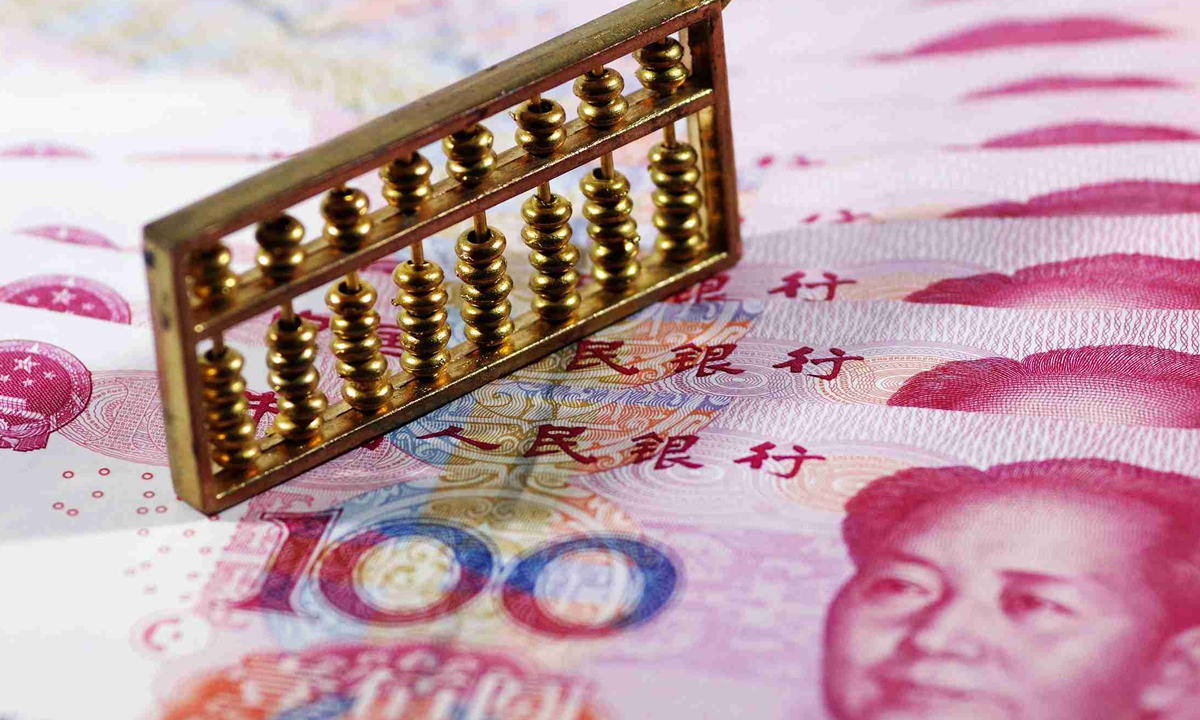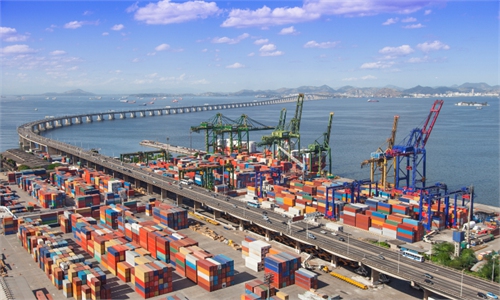Yuan's globalization accelerates as world's biggest hardwood pulp producer, more traders expected to settle deals in Chinese currency

Chinese yuan Photo:VCG
Brazil's Suzano SA, the world's biggest producer of hardwood pulp, may accept yuan for exports of its products to China, a further sign that the yuan's internationalization has gained momentum while the US dollar is losing its dominance in commodity markets, experts said.
China's currency is growing in importance and smaller customers there are requiring deals linked to yuan, Suzano CEO Walter Schalka said in an interview at Bloomberg's New York headquarters, the media outlet reported on Tuesday.
China is the largest commodity buyer and takes 43 percent of Suzano's pulp. While the dollar remains dominant, the use of the yuan in contracts for everything from oil to nickel is gathering speed, the CEO was quoted in the report as saying.
Analysts said that the company's move is the implementation of the results of Brazilian President Luiz Inacio Lula da Silva's visit to China, during which he called for BRICS countries to settle trade in their own currencies.
On April 12, China's largest commercial bank, Industrial and Commercial Bank of China, processed the first cross-border yuan settlement in Brazil at its local branch there, the Xinhua News Agency reported.
Benefiting from the steady development of China's economy, open financial market and the continuous construction of the yuan cross-border payment system, the currency's internationalization has accelerated, experts noted.
"More countries, economic organizations and large enterprises around the world are increasingly inclined to settle their trade with China in the yuan due to its stable value, compared with the ups and downs of the US Fed's monetary policy," Wang Peng, a research fellow at the Beijing Academy of Social Sciences, told the Global Times on Tuesday.
In recent years, the trend of de-dollarization in the international monetary system has increased significantly, mainly due to the US' abuse of its dollar hegemony and continuous weaponization of the currency and payment system.
In addition, in order to solve domestic economic contradictions, the fluctuations of US monetary policy have brought serious negative spillover effects, causing a series of problems for many countries such as financial market turmoil, worsening debt crises and serious inflation.
"The decline of the dollar's hegemony has led to a rise in demand for non-dollar currencies such as the yuan, objectively creating opportunities for the internationalization of the Chinese currency," the expert noted.
Pakistan-based newspaper The News International recently cited an unidentified source as saying that Pakistan might pay for a test cargo of 750, 000 barrels of crude it plans to import from Russia in yuan. The cargo will probably reach Pakistan by June.
In February, Iraq's central bank said that it would trade with China in the yuan.
In April, Argentina announced that it would start paying for Chinese imports in yuan rather than in US dollars.
Wang said that in the future, the yuan will play a bigger role in global payment and settlement, foreign exchange reserves as well as third-party pricing.
Currency Composition of Official Foreign Exchange Reserves data released by the IMF showed that as of the fourth quarter of 2022, the yuan accounted for about 2.7 percent of global foreign exchange reserves, ranking fifth among major reserve currencies.
In May 2022, the IMF lifted the weighting of the yuan in the Special Drawing Rights basket from 10.92 percent to 12.28 percent, reflecting recognition of the increased free access to the Chinese currency.
"The continuous progress of yuan internationalization will be conducive to enhancing China's status and voice in international finance and trade, and further allow the world to enjoy the benefits of the country's vigorous economic development," Wang noted.
Global Times



